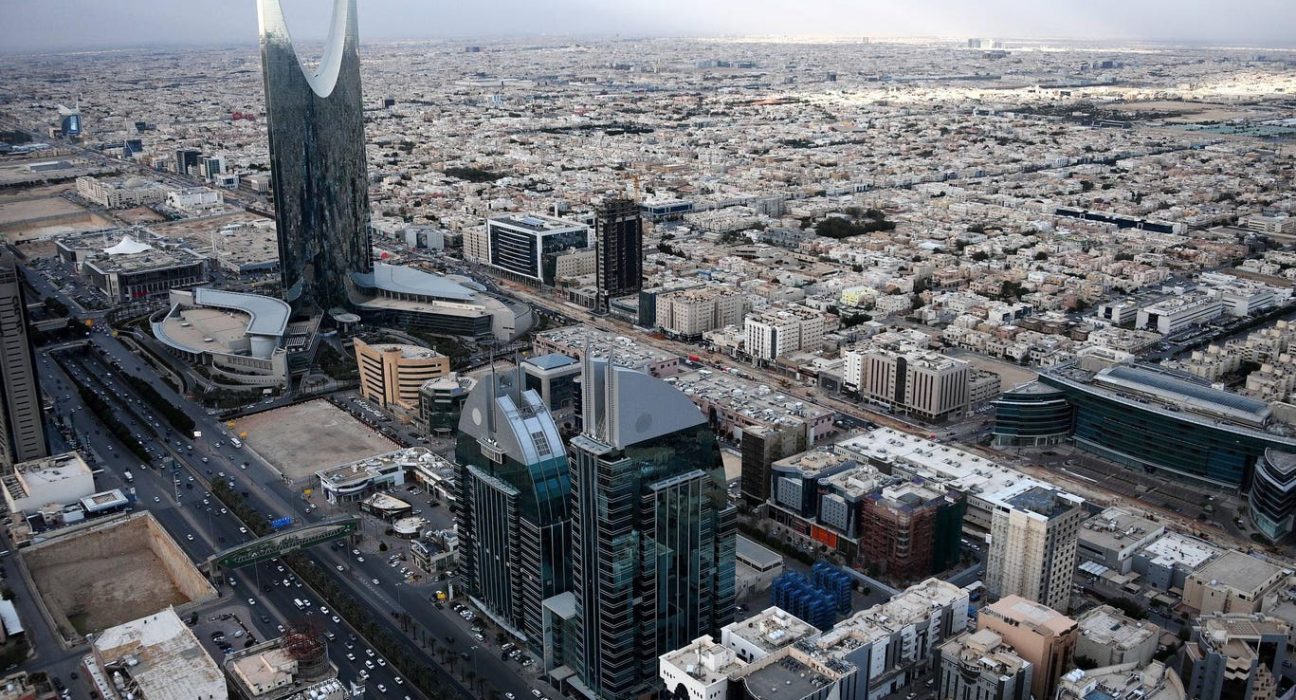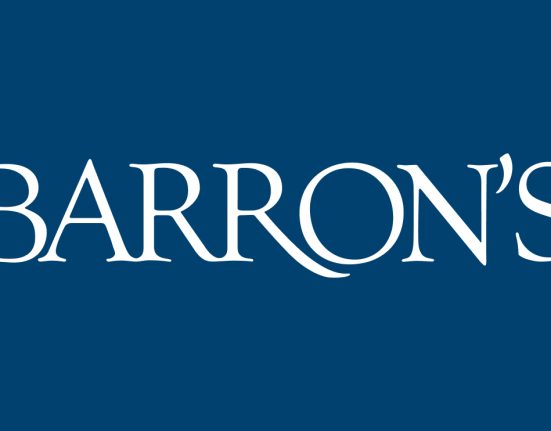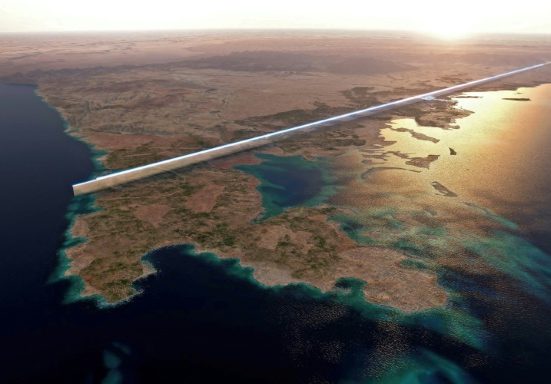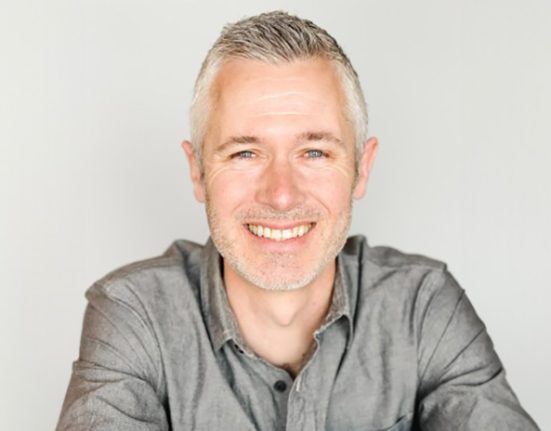Saudi Arabia’s government is trying to transform its capital city of Riyadh into an AI hub.
AFP via Getty Images
When Saudi communications minister Abdullah Al Swaha took the stage of the Leap tech conference in Riyadh in February to boast of the kingdom’s tech ambitions, a centerpiece of the pitch was an accelerator intended to create 300 new artificial intelligence startups in just three years.
“Last year, we announced the largest generative AI accelerator Gaia and this year in partnership with you we have decided to take it to a billion dollars under the sponsorship of his royal highness,” he said in the speech.
But founders who’ve gone through the Gaia program told Forbes that the kingdom has been slow to pay out on promised government grants — if it has paid out at all. Each founder expected to receive $40,000 in government grants and an additional $100,000 in equity investment from New Native, the startup accelerator that ran the Gaia program. According to interviews with seven Gaia founders, internal documents and Zoom meeting recordings reviewed by Forbes, many of the startups have not received the grants, or the investment, which totaled an estimated $4.2 million.
The only startups to benefit from Gaia’s pitch were members of the program’s first cohort, who received the Saudi government grants and just a fraction of the investment from New Native, two of the founders said. Five others who spent tens of thousands of dollars on travel and lodgings to participate in the 10-week, Riyadh-based program in 2023 and 2024 said they hadn’t received any money at all.
“These founders stopped what they were doing to spend a couple of months in the kingdom and spent over $20,000, and they are very bitter about this,” one said. “This looks bad for the Saudi government.”
The program is bankrolled by the National Technology Development Program (NTDP), the Saudi government agency tasked with building the kingdom’s tech ecosystem. Reached for comment, NTDP vice president of entrepreneurship Meshal Alkabeer told Forbes it had offered extra support to the Gaia startups, and the grants were now being processed for startups that had filed the necessary paperwork.
New Native cofounder Simon Olson said that while it had the option to invest in Gaia startups, the investment was not guaranteed. “I know it’s not perfect and there are a lot of things that we are improving over time in that region,” said Olson. “We have continued to support these companies with our own private capital and we run the program at zero cost for startups.”
Gaia was meant to attract some of the world’s hottest early stage AI founders to the kingdom with the goal of creating 300 new AI startups in just three years. Founders who participate would register a business in Saudi Arabia and receive a resident visa to encourage them to stay and continue building their companies after the program ends. It has been billed as a fast lane to connect with Saudi officials and local companies booming thanks to a trillion dollar investment plan from the kingdom’s government. Billionaire Bill Gates and business influencer Gary Vaynerchuk both stopped by Gaia’s headquarters while recently touring the Saudi capital.
As part of the program, founders are promised $40,000 grants to pay bills while working on their startup ideas. But some of the founders in the second and third cohort that Forbes spoke to had not yet received this grant; they had faced delays registering a company, and some paperwork was rejected by NTDP. While NTDP had helped them try to navigate a local bureaucracy that has limited experience working with foreigners, the founders said they are still waiting for the grants to be paid.
“They are trying to leapfrog an industry. Do you expect it to be perfect?” asked one of the founders. “The vision is a lot bigger than just a grant; they allow us to access all the data of Saudi Arabia.”
The $100,000 in funding in exchange for 7% equity was supposed to come through New Native’s VC partner, American fund Venture Growth Partners. But New Native cofounder Pawel Czech told founders that this funding fell through after the program started, according to a recording of a February Zoom meeting viewed by Forbes. Founders in the program told Forbes that only founders in the first cohort had received some of the investment funds, about $40,000 of the promised $100,000, which they were told came directly from New Native’s management.
“The main issue is that New Native promised to everybody that they had secured cash but they did not,” said one founder who requested to remain anonymous. Venture Growth Partners did not respond to a comment request by press time.
New Native cofounder Czech had told Gaia founders its contract with NTDP hinged on bringing startups to the kingdom. “Our KPI is to register companies in Saudi,” said Czech in a February Zoom meeting. “If we don’t meet the timeline, we don’t get paid.”
According to a December 2023 email obtained by Forbes, Czech offered Gaia’s founders a compromise to make up for the delays by proposing to halve the 7% equity investment the accelerator would have taken, or delay its investment until February 2024.
In a YouTube video filmed at a Gaia demo day that month, Czech said that New Native planned to close on a $100 million fund backed by Dubai-based crypto investor Mempool that month to invest in startups in the program. Mempool cofounder Ian Arden said fundraising was ongoing.
The Saudi dreams of founders who took part in the Gaia program have also taken a dent.
The Gaia accelerator website continues to tout a $100,000 equity investment from New Native and was inviting applications for the fourth cohort of founders only last month. “They are starting cohort four but they still haven’t secured funding for the earlier cohorts which is pretty weird,” says one of the founders still waiting for a check from New Native.
New Native and NTDP told Forbes that the Gaia program’s fourth cohort was suspended until a new fund had been raised.
Along with attempting to establish Riyadh as a hub for AI startups, the kingdom has been looking to invest huge amounts into tech and AI. At the Leap conference, Minister Al Swaha announced $12 billion in deals with tech giants like Google, Amazon and Oracle, and a partnership with AI chipmaker Groq. The New York Times reported in March that Saudi’s sovereign wealth fund PIF is reportedly in talks with venture capitalists Andreessen Horowitz over a $40 billion AI-focused fund.
The Gaia accelerator and Saudi Arabia’s AI ambitions are just one plank of Prince Mohammed bin Salman’s Vision 2030 plan to diversify his kingdom’s economy away from its reliance on fossil fuels. This sprawling plan includes a $1.5 trillion project to build a new city and tourist hub, Neom, on the Red Sea, along with plans to boost the country’s tech and manufacturing sector along with getting more Saudi women into the workforce.
Bloomberg reported earlier this month that the Neom project would be scaled back as the PIF’s cash reserves dropped to $15 billion, the lowest level since 2020, when PIF began disclosing its cash holdings. “We are fairly well positioned to be an AI hub outside of the U.S.,” said PIF Governor Yasir Al-Rumayyan in a speech in February touting the kingdom’s ability to fund and power AI data centers, Reuters reported.
The Saudi dreams of founders who took part in the Gaia program have also taken a dent. Gaia founders said that some of the startups involved have folded, or stalled, while many are still out of pocket. Other founders told Forbes the prospect of local business deals would lead them back to the kingdom.
Saudi communications minister Al Swaha himself wants to be judged by results. “Every year, we’re going to come back and demonstrate to you how we’re walking the talk…and demonstrating how we are changing a kingdom, a region, and the world powered by you, talent, and technology,” he said in his Leap speech.







